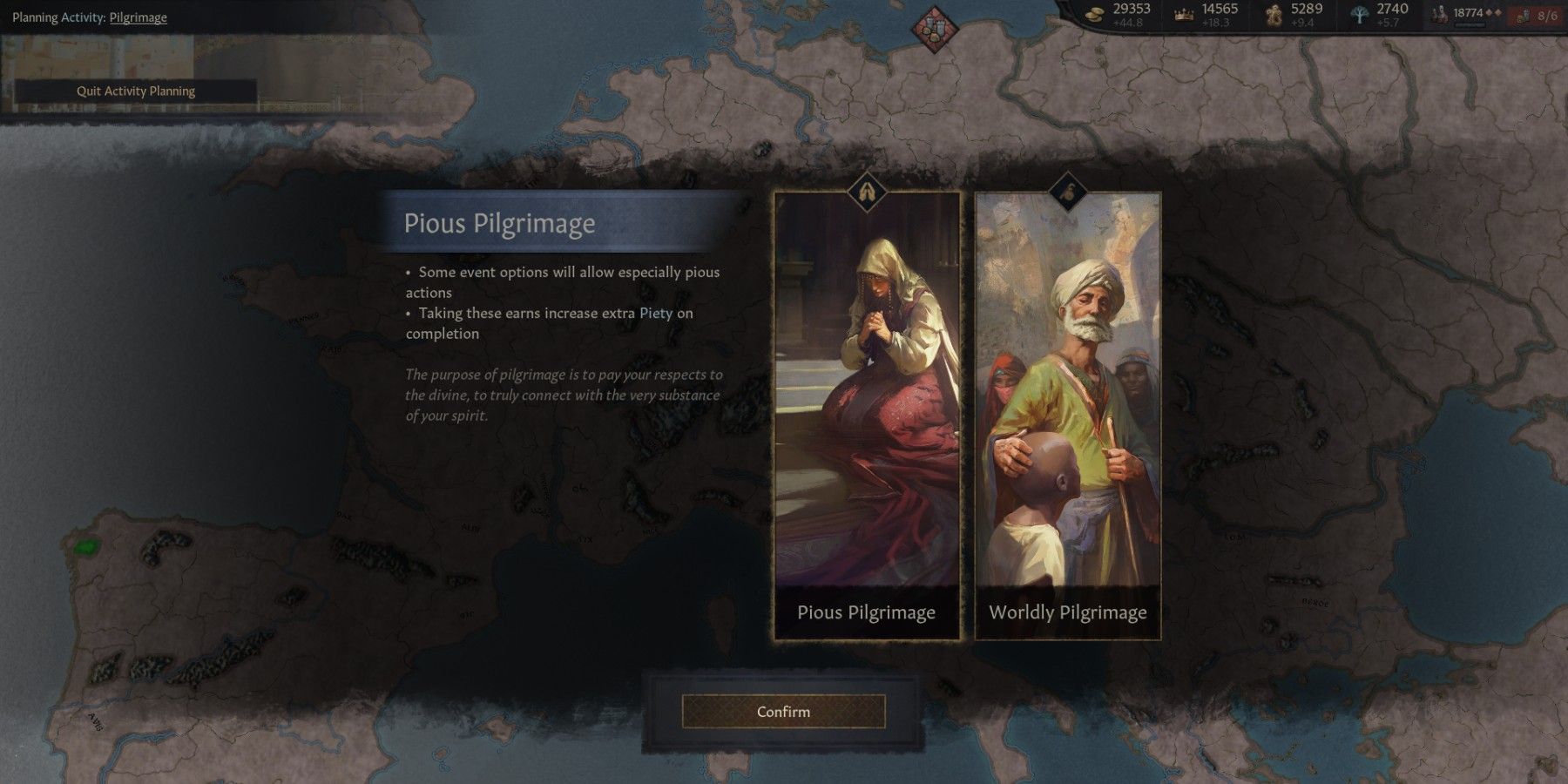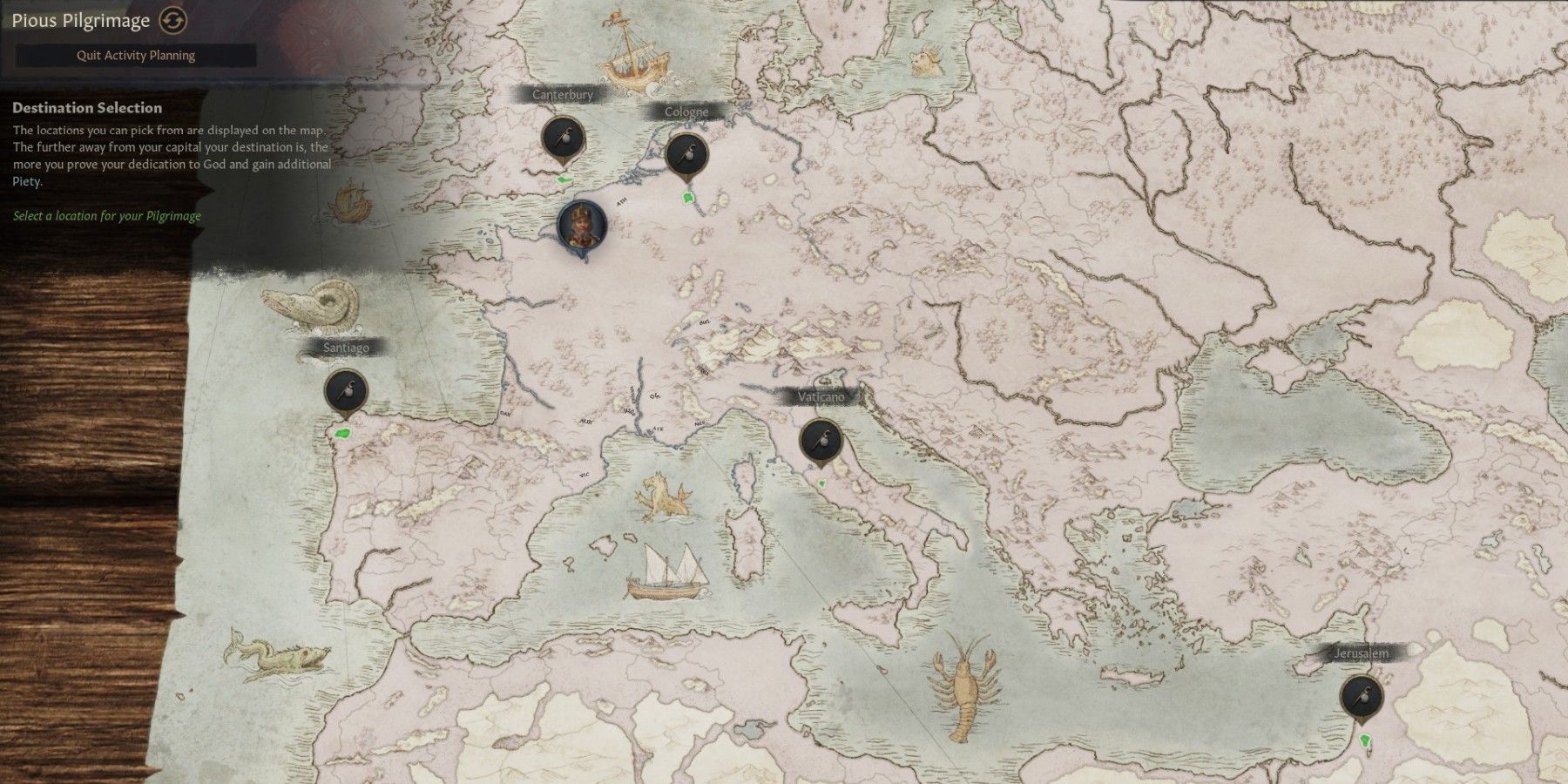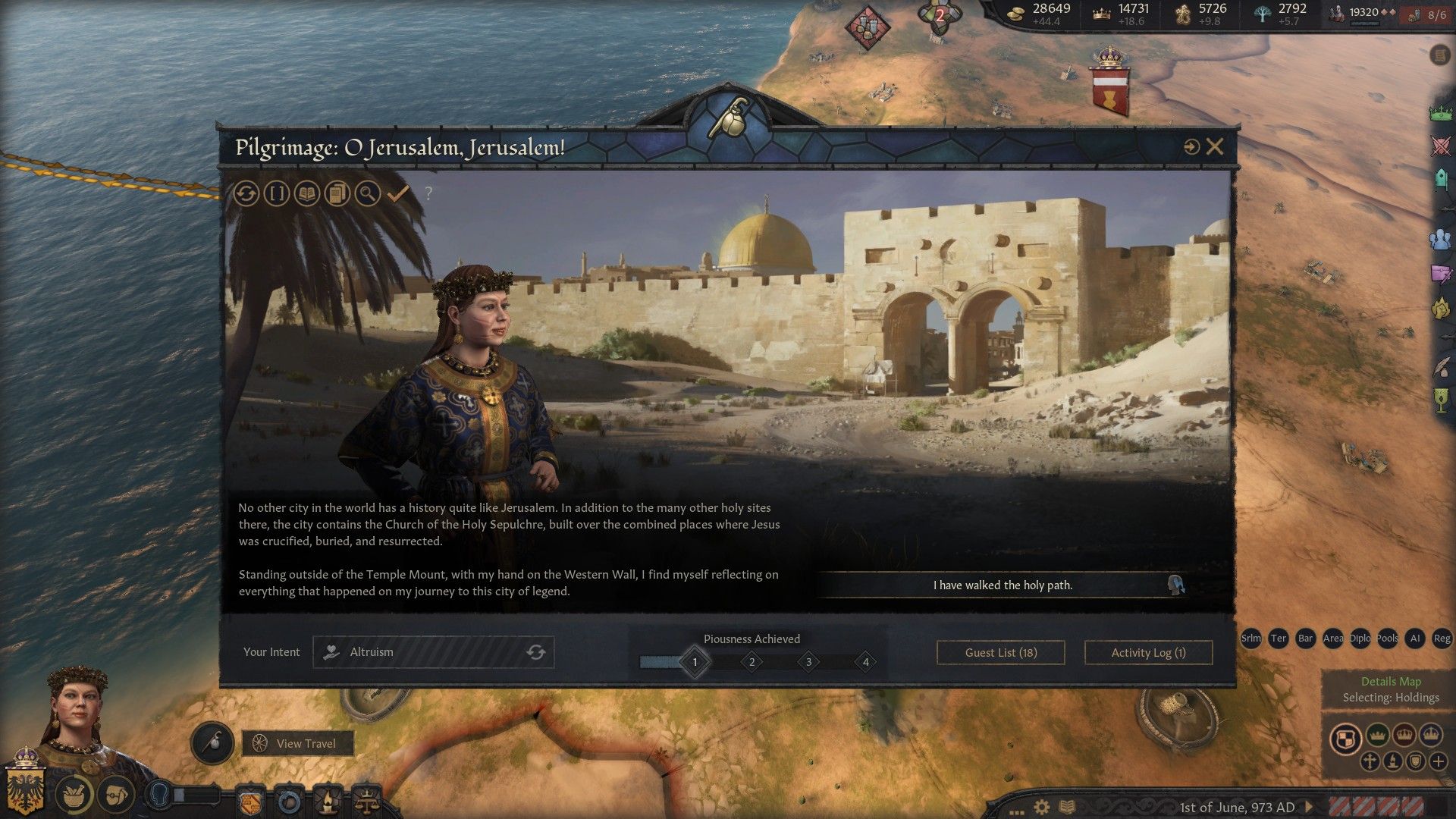Quick Links
Every time Paradox Interactive releases a major expansion for Crusader Kings 3, they also overhaul the base game with a major update. For the "Tours and Tournaments" expansion, the accompanying update is 1.9, or "Lance."
Among other tweaks, the Lance update completely changes how activities like feasts, hunts, and pilgrimages work. Instead of sending a ruler off for a while and getting a few random events for the effort, players now have to plan their route and decide how to spend their gold. This makes pilgrimages in Crusader Kings 3 more complicated but also more rewarding.
Setting Off
The first thing players should do when planning a pilgrimage is check their ruler's religion. A new doctrine added in the Lance update is "Pilgrimage Attitude." This can be Forbidden, Encouraged, Mandatory, and Hajj. "Forbidden" makes pilgrimages actively sinful, and the pilgrimage activity may not even appear in the new Activities menu. In exchange, followers get extra Piety and can fight better against members of the same religion.
"Encouraged" is the default view, and "Hajj" is the special Muslim variant of "Mandatory." In either case, followers of a "Mandatory" faith get a Piety penalty and an Opinion penalty from members of the same faith, and these penalties are canceled out by the Pilgrim trait. On the plus side, pilgrimages provide extra faith and the Pilgrim trait gets extra bonuses.
Assuming the player ruler can go on a pilgrimage, players should check the new Activities menu (it's the goblet icon on the right side of the screen) and choose "Pilgrimage" from the list. Players can then choose between any of the holy sites that their faith cares about. Every holy site is a valid option, even if a hostile or evil faith controls it, though this tends to make the journey more dangerous. Also, if the holy site is out of the ruler's realm, they'll have to start a regency before setting off.
The next choice is between a "Pious Pilgrimage" and a "Worldly Pilgrimage." A pious pilgrimage will get more events that increase Piety, and by increasing a special "Piousness" stat the player ruler will get more Piety from trip events. A worldly pilgrimage gets more events about meeting people from other cultures, and the "Worldliness" stat will give rulers a temporary trait that lowers stress gain and boosts their opinion on other cultures and faiths.
Next, players should choose their travel route. Each pilgrimage can only visit one holy site even if players create detours in the route, so focus on the best compromise between safe and fast instead. On the bright side, player rulers can now go on pilgrimages as often as they can afford to instead of having to wait 15 years between each trip.
Like other activities, players can choose a few other options that may add to the pilgrimage cost. The Intent list is shorter than for other events, and players can only choose between Reflection, Altruism, and Zealotry. Reflection is the usual stress-lowering option, Altruism can add Opinion and Prestige, and Zealotry has more opportunities to raise Piety.
The Fidelity option can increase travel speed but lower Piety gain, or it can do the reverse, but the player ruler must qualify for the non-default choices. Contemplative is slower but more pious, but the ruler must have the Patient trait or already be a Pilgrim. Obligatory is faster but less pious, but the ruler must be Impatient or belong to a faith with Mandatory pilgrimages.
The Pomp option determines how many people come with the player ruler. The default option is Appropriate, which includes a few bodyguards, a friend, and a few random pilgrims. Humble is cheaper and offers more Piety, but it means traveling alone in the company of seven random pilgrims. Ceremonial is more expensive and adds more Piety, and it includes extra courtiers and up to 10 random pilgrims. Throng is much more expensive and much more Pious, and it basically involves taking the whole court and 20 random pilgrims to the holy site.
Enjoying the Destination
Once the player ruler reaches their destination, they'll spend several months touring the holy site. Every 7 days a random event can fire, and this can include background events that add Piety, add Prestige, boost relationships, or add Glory to acclaimed knights without demanding the player's attention. However, many of the events will call players back to the pilgrimage screen to make a decision.
Decisions made during the holy site tour can also impact the pilgrimage's final piousness or worldliness level. However, once the ruler says goodbye to the site, this stat won't change.
Pilgrimages are still a good way to get lots of Piety in a short amount of time. In fact, they're even better now since players can choose a pious pilgrimage and focus on events that increase piousness and Piety to get over 1000 Piety in a single event. And since pilgrimages no longer have a cooldown period, a ruler who lives near a holy site can get all the Piety they need in no time at all.
Crusader Kings 3 is available now on PC, PS5, and Xbox Series X/S.






